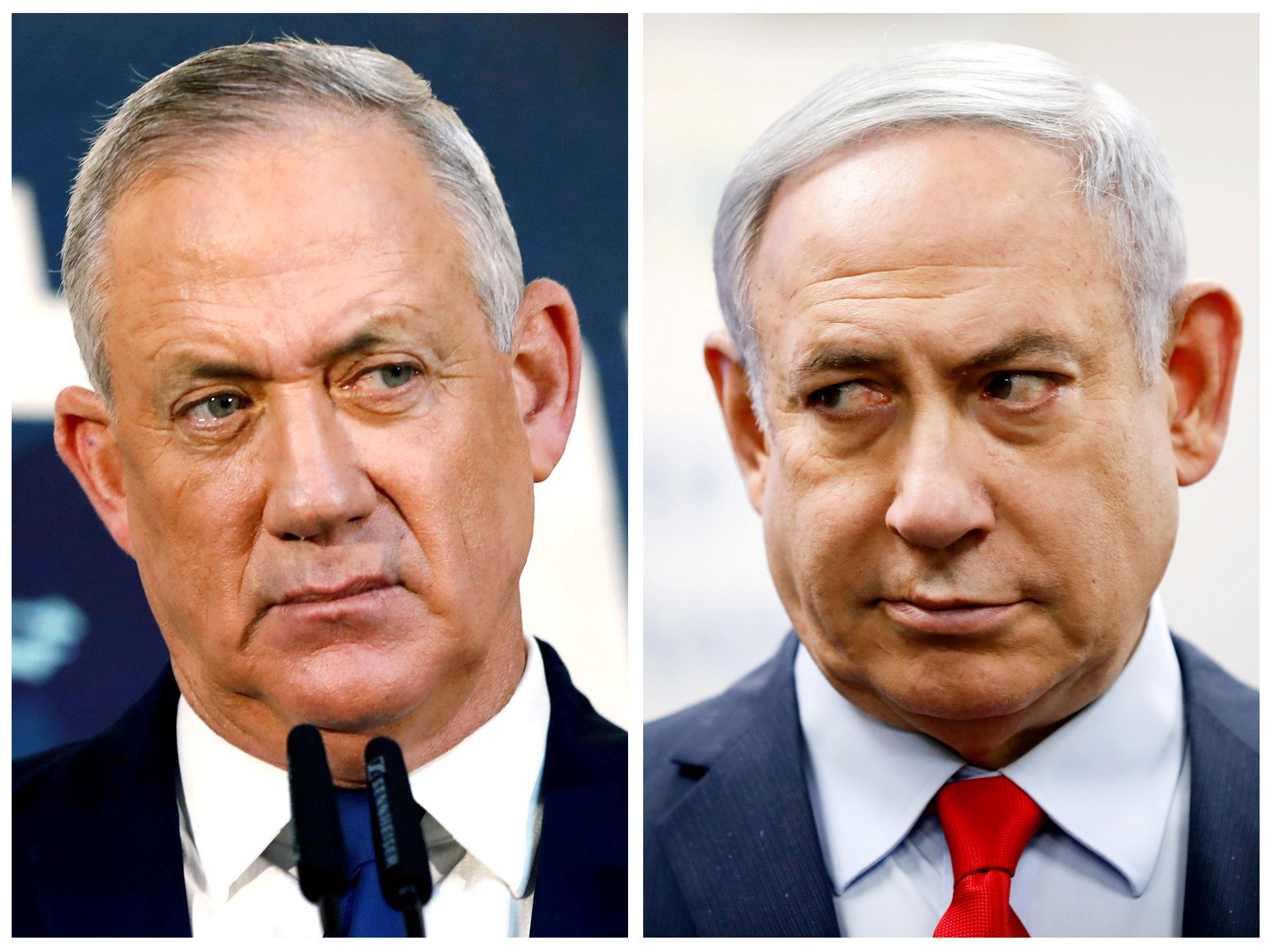In the end, it took the coronavirus to break the year-long deadlock in Israeli politics. Prime Minister Benjamin "Bibi" Netanyahu will still face corruption charges, but he has yet another new lease on political life, as he and political rival Benny Gantz cut a deal yesterday: Bibi will continue as prime minister, with Gantz serving as Speaker of the Knesset, Israel's parliament. After 18 months, Gantz will take over as prime minister, but many doubt that will ever happen.
It's a full about-face for Gantz, who had previously vowed never to serve under a prime minister facing formal corruption charges. But Gantz's inability to form a coalition government of his own, and the need for an "emergency unity government" in the face of the coronavirus crisis, forced his change of heart.
"These are not normal times and they call for unusual decisions," Gantz explained, much to the anger and dismay of some of his political allies. The virus outbreak has also delayed the opening of Netanyahu's trial until May 24.
